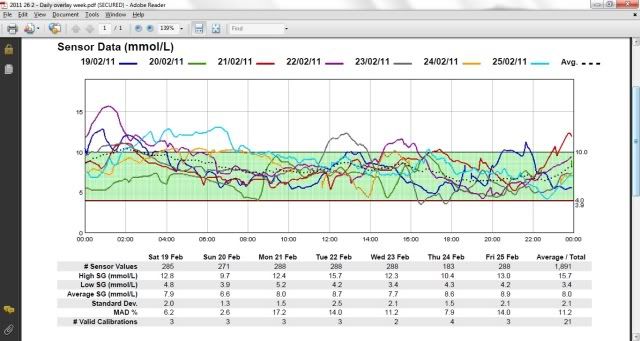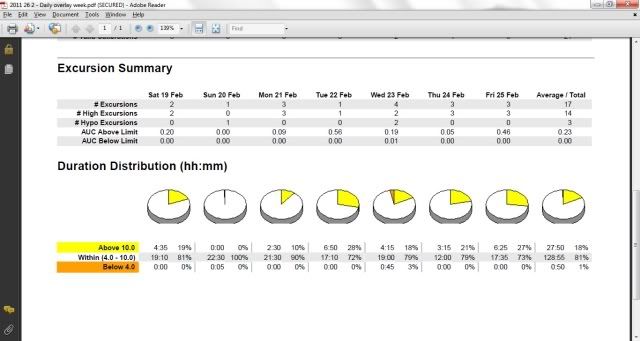Adrienne
Well-Known Member
- Relationship to Diabetes
- Parent
Hi
I'm hoping this works, Northerner kindly sorted this for me. This is a graph of Jessica's sensor download last week.


If you look at the dotted line in amongst all the coloured ones that is the average line. We can use that line to make the tweaks to the basal. However I know that these are all pretty much spot on readings with no time lag at all except for the catch up if a bit high or a bit low. Using this sensor we prevent 3 or 4 hypos, caught them all around the very low 4.0's.
Sensors hurt when they are inserted and Jessica does cry sometimes but she knows and I know how beneficial they are to both of us for different reasons.
The second one at the very right shows that we were 81% in range (between 4.0 and 10.0) all week which is fantastic.
I hope this works. 🙂
I'm hoping this works, Northerner kindly sorted this for me. This is a graph of Jessica's sensor download last week.


If you look at the dotted line in amongst all the coloured ones that is the average line. We can use that line to make the tweaks to the basal. However I know that these are all pretty much spot on readings with no time lag at all except for the catch up if a bit high or a bit low. Using this sensor we prevent 3 or 4 hypos, caught them all around the very low 4.0's.
Sensors hurt when they are inserted and Jessica does cry sometimes but she knows and I know how beneficial they are to both of us for different reasons.
The second one at the very right shows that we were 81% in range (between 4.0 and 10.0) all week which is fantastic.
I hope this works. 🙂
Last edited:
